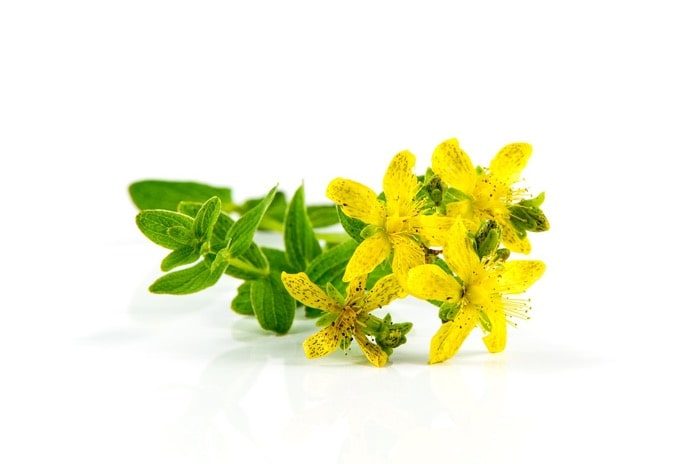St. John’s wort has been used to treat a variety of mental health conditions including depression. Here, we discuss three things to know about using St. John’s wort for depression.
St. John’s wort, Hypericum perforatum, is a flowering plant native to Europe that has been used for centuries to treat a variety of mental health conditions, especially depression.
The name comes from the fact that St. John’s wort usually blooms on the birthday of the biblical John the Baptist.
The yellow flowers and leaves of St. John’s wort contain active ingredients such as hyperforin and hypericin, which are phytochemicals used to make liquid extracts, pills, and teas, along with topical preparations.
1. May have similar effects to a placebo in treating depression
The National Institute of Health (NIH) evaluated several studies using St. John’s wort to treat depression.
A 12-week study with 73 participants taking either St. John’s wort or a standard antidepressant medication (citalopram) found that neither treatment decreased symptoms of minor depression better than a placebo.
A longer study, which was 26 weeks long with 124 participants, found that St. John’s wort and a different standard antidepressant (sertraline) were similarly effective as a placebo in treating major depression of moderate severity.
In 2008, a review of 29 studies worldwide found that St. John’s wort may be better than placebo and as effective as various standard prescription antidepressants for mild to moderate symptoms of major depression. These researchers also determined that St. John’s wort has fewer side effects than standard antidepressants.
On the other hand, a study of 340 participants in 2002 established that St. John’s wort was no more effective than a placebo in treating moderate symptoms of major depression.
2. May decrease the effects of prescription medicines
Unfortunately, St. John’s wort can decrease the effects of several prescription medicines, including, but not limited to, the following: antidepressants, birth control pills, cyclosporine (used to prevent rejecting transplanted organs), digoxin (heart medication), oxycodone, several HIV and cancer medications, along with warfarin.
As such, it is imperative to ask a healthcare provider if it is possible to take St. John’s wort if someone is already taking other medicines.
3. May have life-threatening side effects if combined with antidepressants
Most side effects of St. John’s wort are minor and uncommon, including upset stomach, dry mouth, headache, fatigue, dizziness, confusion, sexual dysfunction, and sensitivity to sunlight.
Since St. John’s wort is a stimulant, it is also important to note that it may worsen feelings of anxiety.
However, combining St. John’s wort with antidepressants can lead to a potentially life-threatening increase in serotonin, a nerve cell that is responsible for regulating mood.
Symptoms may occur within minutes or hours, made up of agitation, diarrhea, fast heartbeat, high blood pressure, hallucinations, and increased body temperature.
There are also case reports of St. John’s wort having dangerous side effects, like worsening psychotic symptoms in people with bipolar disorder and schizophrenia.
In summary, there is conflicting evidence regarding the use of St. John’s wort in treating depression although most studies suggest that St. John’s wort is just as effective as standard antidepressants but with fewer side effects.
Nonetheless, studies have repeatedly shown that it is dangerous and possibly life-threatening to take St. John’s wort in combination with numerous other prescription medicines. As a result, it is important to speak with a healthcare professional about the safety of taking St. John’s wort if someone is already taking other medications.
Written by Tatsiana Verstak, M.S., B.S.
References:
- Mayo Clinic. St. John’s wort. Last updated Oct. 13, 2017.
- St. John’s Wort and Depression: In Depth by the NIH: National Center for Complementary and Integrative Health. Last modified January 04, 2018.



